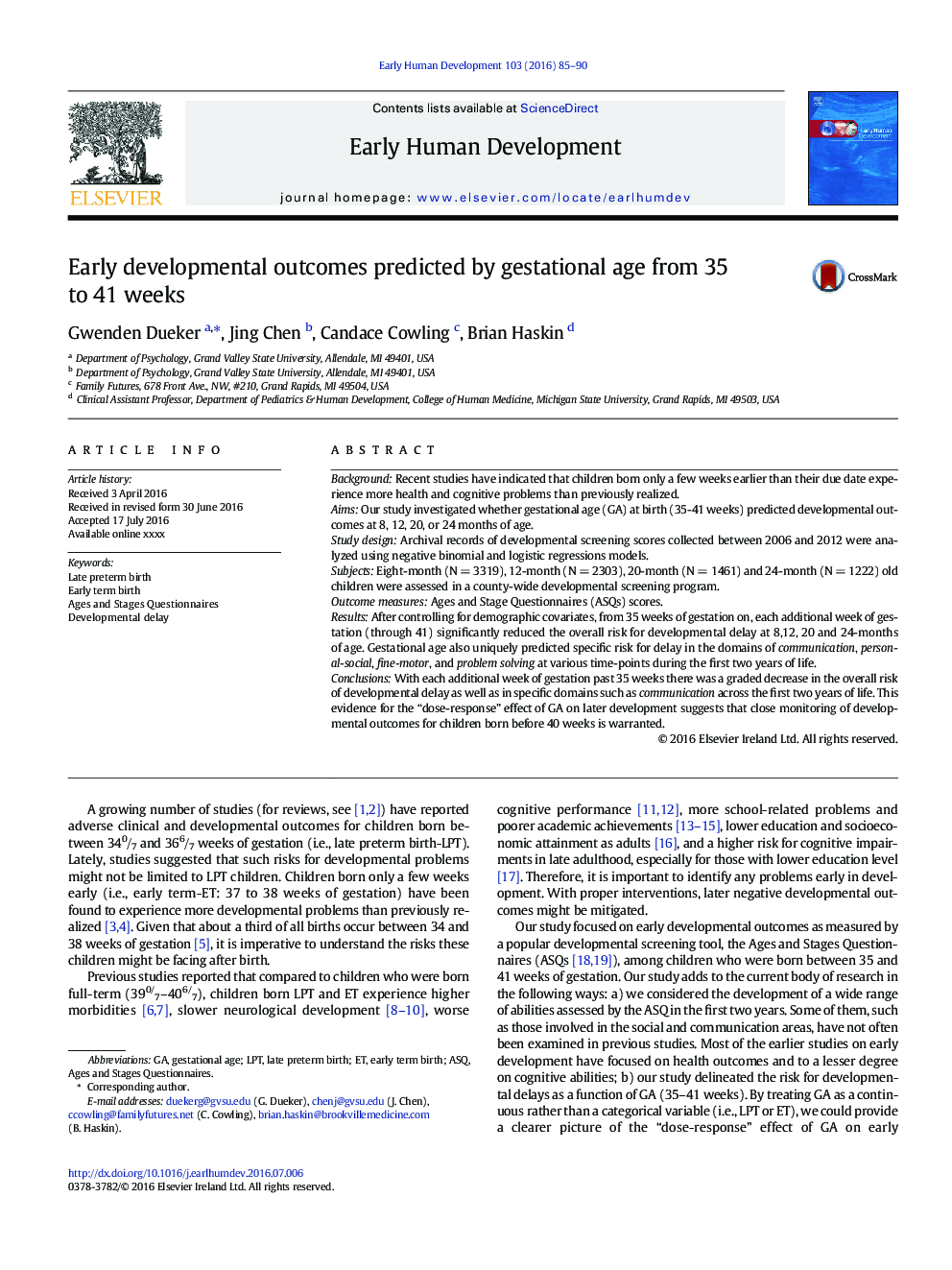| Article ID | Journal | Published Year | Pages | File Type |
|---|---|---|---|---|
| 3916374 | Early Human Development | 2016 | 6 Pages |
•ASQ scores (8–24 months) are predicted by gestational age from 35 to 41 weeks.•Overall risk of delay decreases with each additional week of GA past 35 weeks.•Earlier GA predicts increased risk in communication and personal-social domains.•Regular developmental screening of infants born before 40 weeks is warranted.
BackgroundRecent studies have indicated that children born only a few weeks earlier than their due date experience more health and cognitive problems than previously realized.AimsOur study investigated whether gestational age (GA) at birth (35-41 weeks) predicted developmental outcomes at 8, 12, 20, or 24 months of age.Study designArchival records of developmental screening scores collected between 2006 and 2012 were analyzed using negative binomial and logistic regressions models.SubjectsEight-month (N = 3319), 12-month (N = 2303), 20-month (N = 1461) and 24-month (N = 1222) old children were assessed in a county-wide developmental screening program.Outcome measuresAges and Stage Questionnaires (ASQs) scores.ResultsAfter controlling for demographic covariates, from 35 weeks of gestation on, each additional week of gestation (through 41) significantly reduced the overall risk for developmental delay at 8,12, 20 and 24-months of age. Gestational age also uniquely predicted specific risk for delay in the domains of communication, personal-social, fine-motor, and problem solving at various time-points during the first two years of life.ConclusionsWith each additional week of gestation past 35 weeks there was a graded decrease in the overall risk of developmental delay as well as in specific domains such as communication across the first two years of life. This evidence for the “dose-response” effect of GA on later development suggests that close monitoring of developmental outcomes for children born before 40 weeks is warranted.
